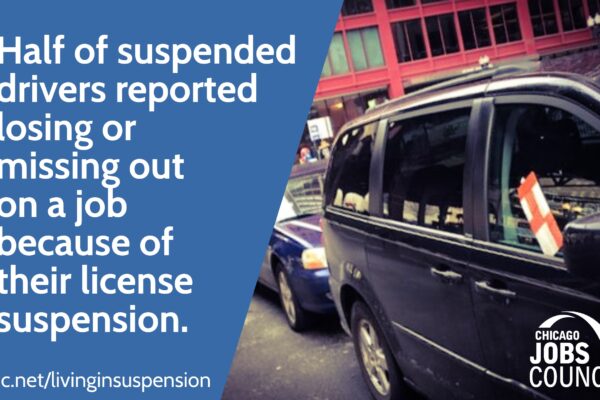Every year, tens of thousands of people in Illinois lose their driver's licenses - and in many cases, their ability to work - for reasons that have nothing whatsoever to do with unsafe driving. Increasingly, driver's license suspensions are imposed not as a punishment for moving violations but as a tool for the government to try to collect revenue from people who have fallen behind on payment of parking tickets or other fines and fees. Unsurprisingly, the impact of these heavy-handed collection tactics falls most heavily upon low-income communities and people of color.
ProPublica recently reported that in Chicago, parking and traffic tickets brought in nearly $264 million in 2016--about 7% of the city's $3.6 billion operating budget. Debt for unpaid tickets disproportionately impacts the city's lowest-income residents, and the highest rates of accumulated ticket debt per adult are concentrated overwhelmingly in majority African American communities.
The relative lack of jobs in low-income neighborhoods means that people from these communities often need to commute to other parts of the city or the suburbs in order to work. Those who live or work in
"transit deserts" can be left without any viable transportation options when they lose their driving privileges.
The proliferation of ticket debt has corresponded with an explosion in driver's license suspensions: the number of suspension requests from the City of Chicago to the Secretary of State's office tripled between 2010 and 2016. These suspensions don't make the roadways any safer. Instead, they force people to choose between unemployment, bankruptcy, or risking going to jail for driving on a suspended license. License suspensions also punish families, because people need to drive in order to get their kids to school, to care for the needs of their elderly relatives, and much more.
This week, the Chicago Jobs Council
released their new report Living in Suspension which highlights the negative impacts these unnecessary driver's license suspensions are having on people's lives in Illinois. In CJC's survey of more than 500 respondents from across the state, they found that:

